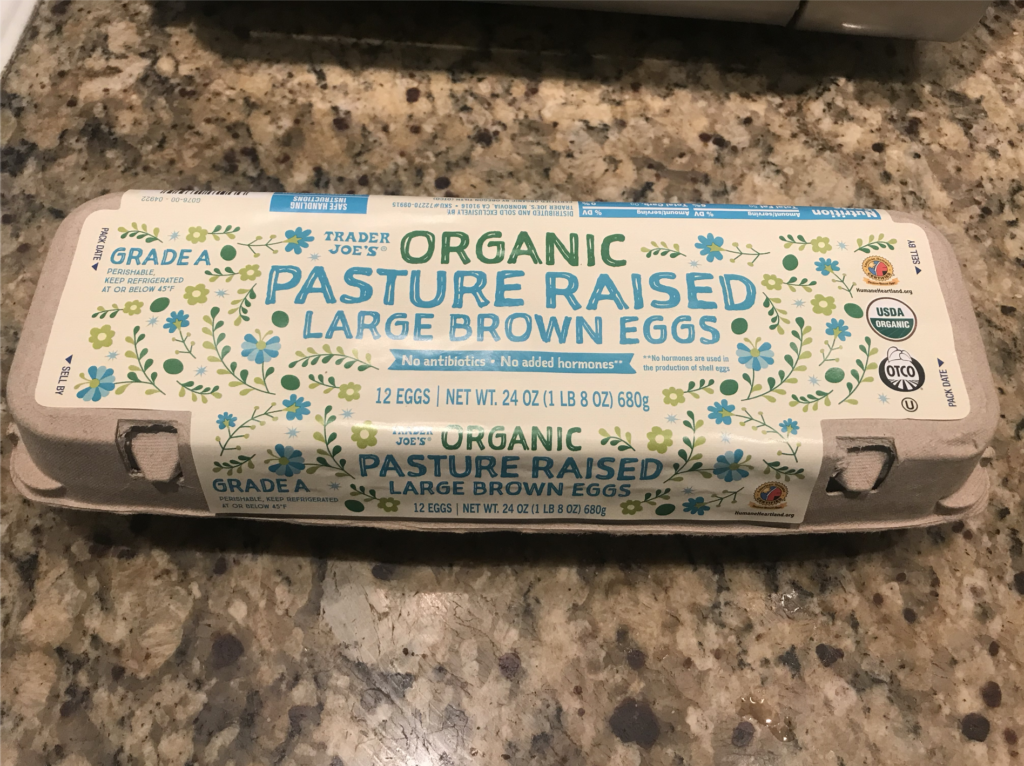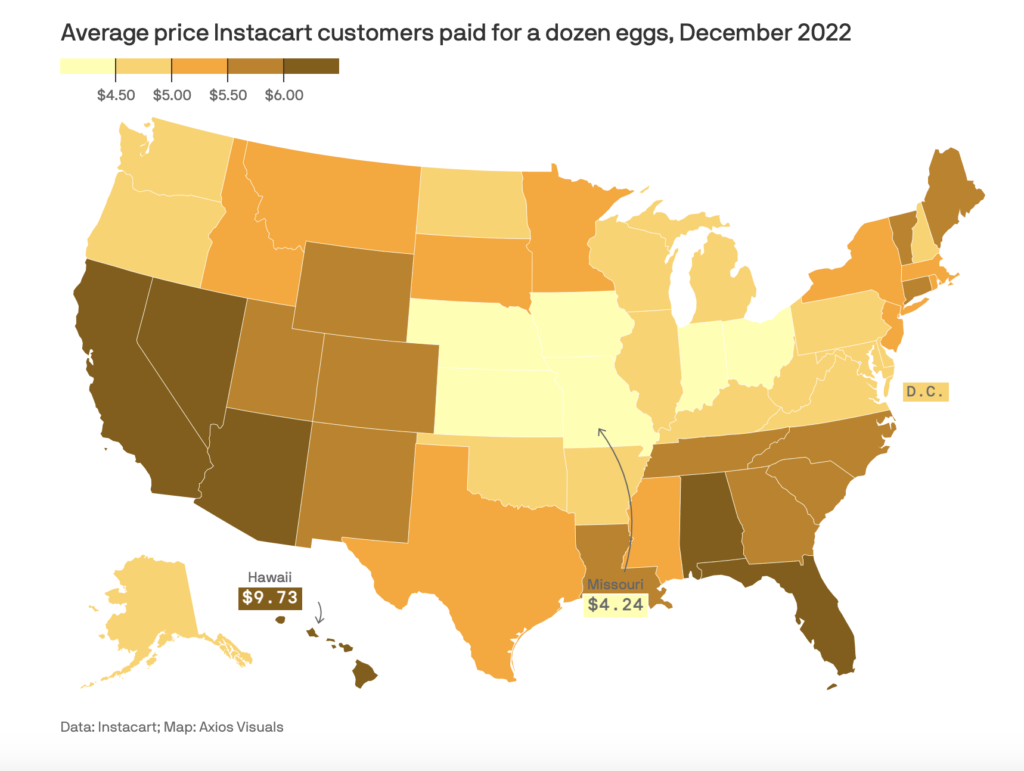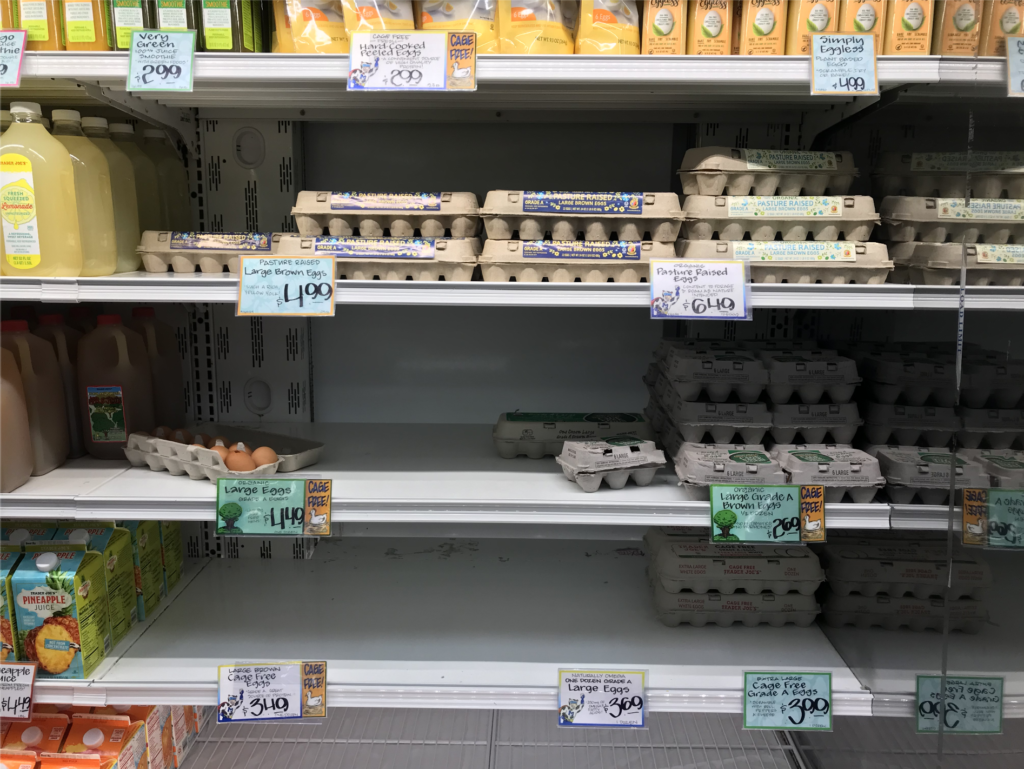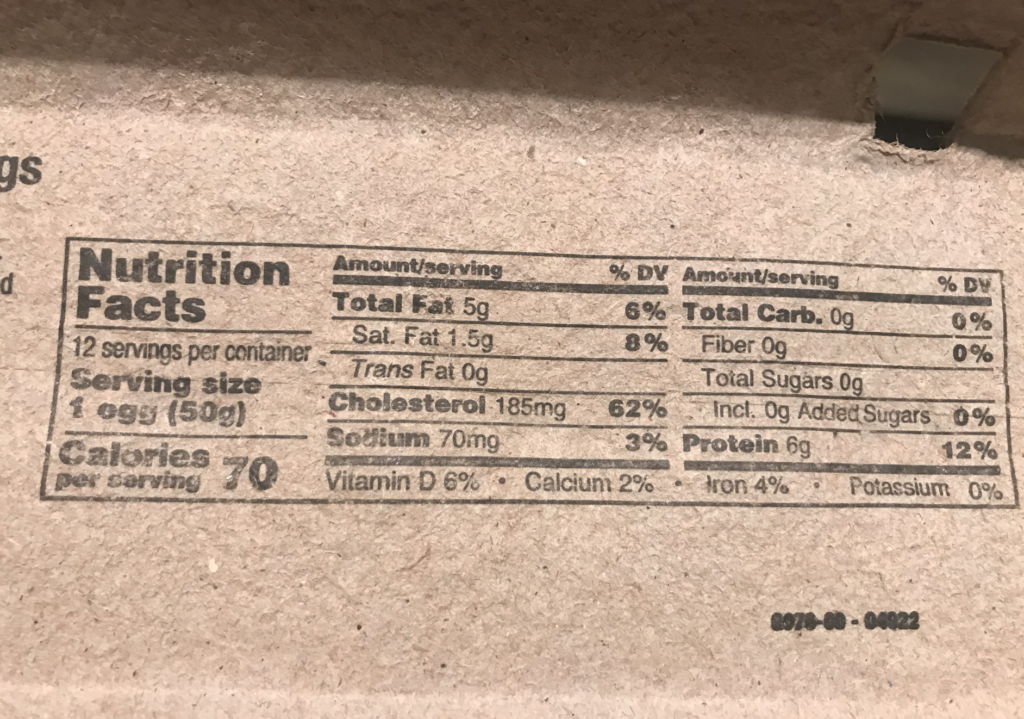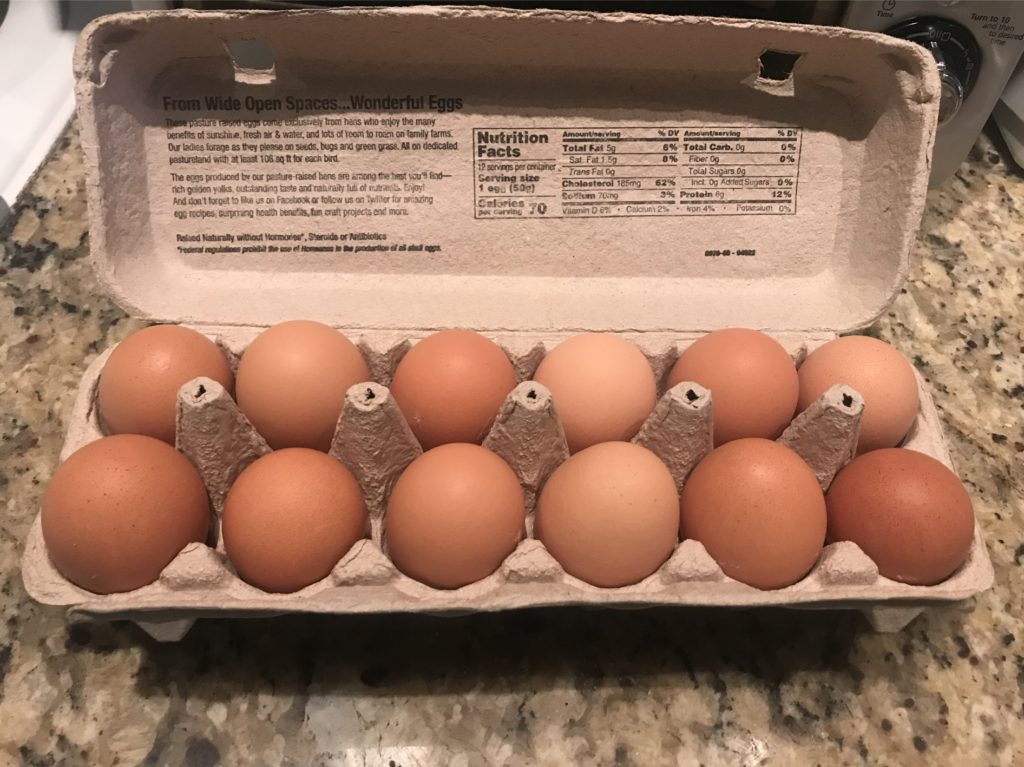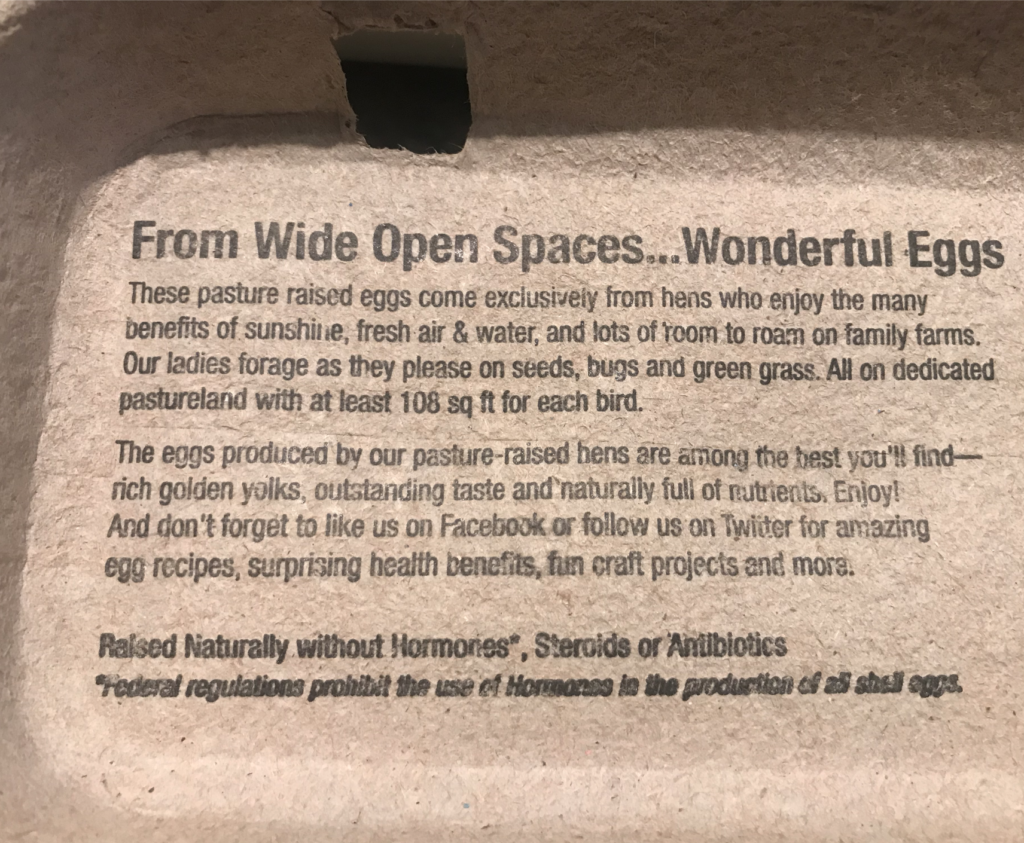If you’ve read the news or visited literally any grocery store in the past few months (I’d be impressed if you hadn’t), then you’re probably aware of the unprecedented egg shortage devastating farmers, distributors, and shoppers alike.
In January 2022, a single case of highly pathogenic avian influenza (HPAI) was detected in a duck in South Carolina. By the following month, cases of the flu began appearing on commercial farms throughout the midwest and Rocky Mountain region. To date, the current avian flu outbreak has killed over 57 million birds nationwide and is being widely regarded as “the deadliest US bird flu outbreak in history.”
Despite the fact that the peak of the outbreak has passed, the US poultry industry is still struggling to recover from the loss of so many chickens, ducks, geese, and turkeys. As a result, US shoppers are noticing an extreme shortage of fresh eggs on grocery store shelves, and when they are available, prices are at an all-time high.
Contents
Egg Shortage Update
This map from Axios Visuals using Instacart pricing data shows the breakdown of egg prices across the US as of December 2022.
As you can see, eggs are currently the most expensive in the southwestern and southeastern United States, including Hawaii which tops the chart at $9.73 for an average dozen. Eggs are least expensive in the midwest where the bulk of US farming happens.
Nevertheless, the lowest average price for a dozen eggs in the US is $4.24, which is still astronomically high compared to past prices. In 2020, for example, the average price of a dozen eggs in the US was just $1.51, according to USInflationCalculator.com.
How The Egg Shortage Is Affecting Trader Joe’s
Here, you can see a picture of the egg section at my local Trader Joe’s as of January 20th. Clearly, the selection has been picked over, and several varieties of TJ’s eggs are completely out of stock.
But despite limited supply, Trader Joe’s is managing to keep their egg prices relatively low even as prices climb across the country. If you recall the map from above, the average price of eggs in Washington State by Instacart’s metric is currently between $4.50 and $5 per dozen. Here at Trader Joe’s, however, even a dozen Grade A Cage Free Eggs is priced at just $3.99.
Confirmed by a recent report from LocalToday.com, Trader Joe’s is succeeding in keeping their egg prices low across the country despite the dwindling supply and pressures from inflation.
So, while finding the perfect dozen at Trader Joe’s is certainly harder now than it was a couple of years ago, you can feel fairly confident that if you’re able to snag one, you’ll be paying significantly less for quality eggs than you’ll pay at most other retailers.
Trader Joe’s Organic Pasture Raised Eggs
Initially, I was planning on buying a dozen of Trader Joe’s Large Organic Eggs. But as you can see from the picture above, the stock was cleared out. The only remaining dozen was full of broken eggs, and the half dozens were similarly battered.
So, I decided to level up and go for a dozen of Trader Joe’s most expensive eggs–their Organic Pasture Raised Eggs, which are currently priced at $6.49 per dozen. Unlike other grocery retailers, Trader Joe’s prices do not vary by location or region, so the prices you see here are consistent across the United States as of January 2023.
While $6.49 certainly seems extreme for a dozen eggs, this is actually a fairly standard price for a dozen organic pasture-raised eggs. At other retailers, I’ve paid upwards of $7 in the past for pasture-raised eggs, even before the egg shortage.
It seems to me that the price of organic and pasture-raised eggs hasn’t fluctuated nearly as much as the price of conventional eggs since the start of the flu outbreak, so I decided to do some research into why this might be.
According to a recent report from Business Insider, “farms that raise organic and other specialty eggs haven’t been as hard-hit by avian flu, leading to a more stable supply and prices.” In some cases, according to the same article, organic eggs might even be available for less per dozen than conventional eggs.
Nutrition
Trader Joe’s Organic Pasture Raised Eggs contain 5 grams of fat, 185 mg of cholesterol, 70 mg of sodium, and 6 grams of protein per egg. This amounts to 70 calories, which includes 6% of your daily value of Vitamin D, 2% of your DV of calcium, and 4% of your DV of iron.
According to WebMD, these numbers are standard when it comes to egg nutrition.
The benefit of buying organic and pasture-raised eggs, in my opinion, is that the chickens are fed with organic feed and allowed to live a normal life for a domestic chicken. This means that pesticides and other additives aren’t making their way into your food supply by way of what the chickens eat. It also means that the potential for instances of animal cruelty during the farming process is extremely low.
Pasture-raised chickens are also far less vulnerable to disease (case and point with this recent avian flu affecting pasture-raised chickens less dramatically), and they generally yield richer, more flavorful and more nutritious eggs due to their varied diet and healthy lifestyle.
According to an article published by CertifiedHumane.org, research has shown that “one pasture-raised egg contains twice as much omega-3 fat, three times more vitamin D, four times more vitamin E and seven times more beta-carotene than eggs from hens raised on traditional feed.”
Trader Joe’s Egg Quality Review
I tend to only eat organic and pasture-raised eggs, so I’d say my standard for egg quality is pretty high.
On first glance, I was pleased to see that these eggs are brown. I generally associate brown eggs with healthier chickens, but through some recent research, I learned that brown and white eggs are nutritionally equivalent in most cases (good to know!).
Another thing I always check for is how ethical my egg suppliers are. This is the main reason why I choose to buy pasture-raised eggs, because the chance for good agricultural and animal treatment ethics is much higher.
All of the pasture-raised eggs sold at Trader Joe’s come from a company called Carol’s Eggs, based in New Hampshire.
According to the inside of the egg carton, these eggs are raised naturally without any hormones, steroids, or antibiotics. The hens are raised in open pastures where they can forage for seeds, bugs, and grass, and each hen has 108 square feet of space to roam.
When it comes to the ethics of Trader Joe’s other eggs, over half of the eggs TJ’s sells come from cage free hens, according to TraderJoes.com. However, it’s important to be aware that “cage free” does not translate to “ethical” in today’s agricultural reality.
Cage-free hens are not held in literal cages, but they are also not required to have access to the outdoors where they can forage and live normal lives. An article from the Cleveland Clinic suggests that “barn-roaming” would be a more accurate way of describing “cage-free” hens.
In any case, I decided to fry up one of these pasture-raised eggs and have it on top of some multigrain toast with a bit of Trader Joe’s Organic Chunky Homestyle Guacamole and Everything But The Bagel Seasoning on top.
I can officially confirm–these eggs are delicious! Both the whites and yolks are rich and flavorful. The yolks are bright yellow, which was the main thing I was looking for (I hate seeing a pale egg yolk).
Despite being the most expensive eggs at TJ’s, I would definitely buy these eggs again, especially since they’re priced competitively for organic pasture-raised eggs.
For anyone who’s looking for some high quality eggs at a time when conventional eggs are so hard to come by, I definitely recommend making the investment and trying these out on your next trip to TJ’s.

